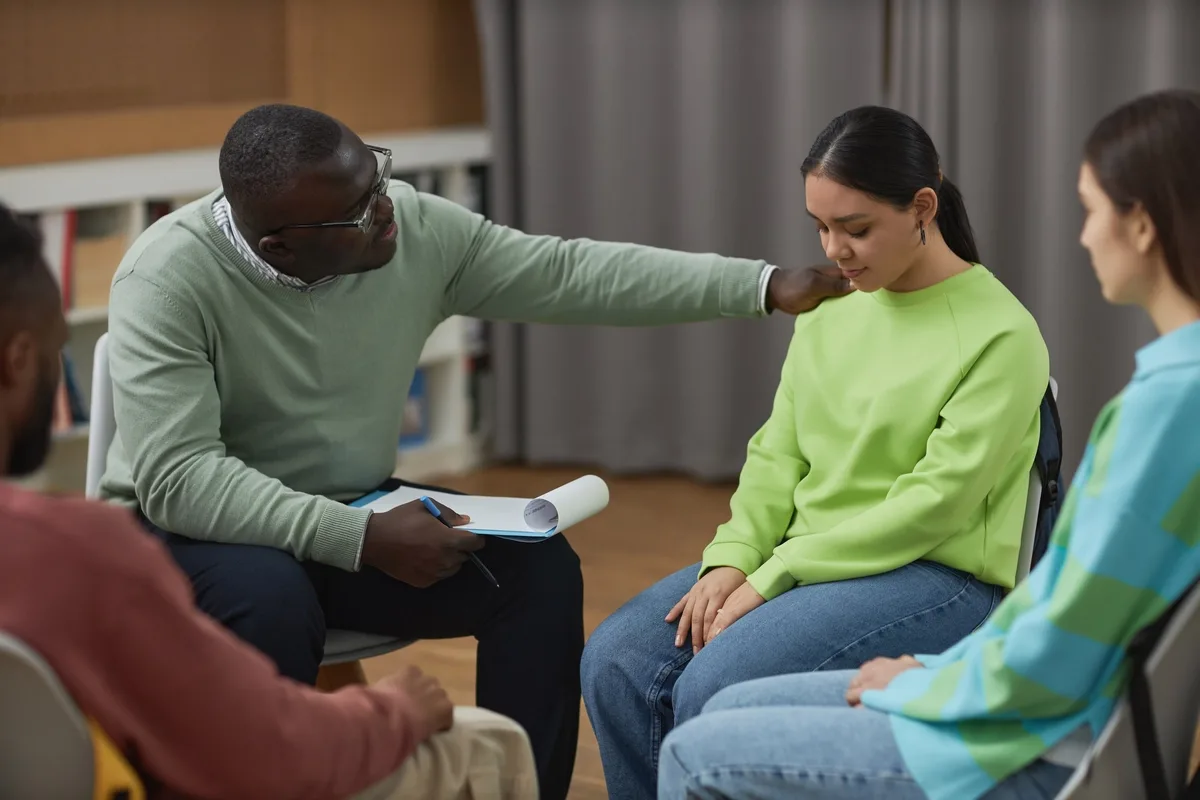24/7 Helpline:
(866) 899-111424/7 Helpline:
(866) 899-1114
Learn more about PTSD Treatment centers in Mora
PTSD Treatment in Other Cities

Other Insurance Options

Health Net

Health Choice

Excellus

EmblemHealth

BlueCross

Optima

Magellan

Meritain

United Health Care

ComPsych

Amerigroup

Sliding scale payment assistance

PHCS Network

Providence

Oxford

Regence

Premera

Choice Care Network

Multiplan

Evernorth

































































































